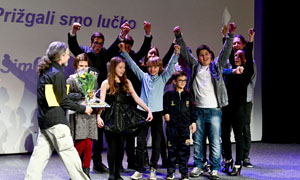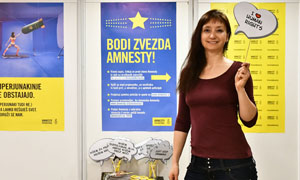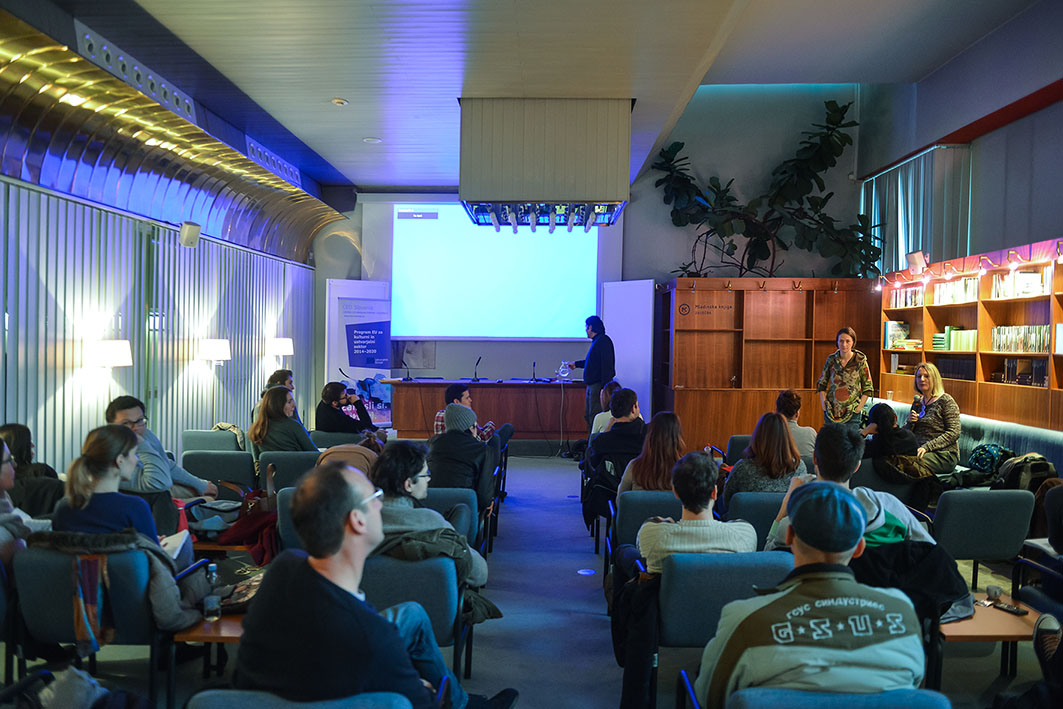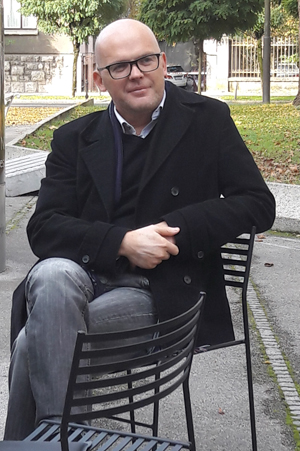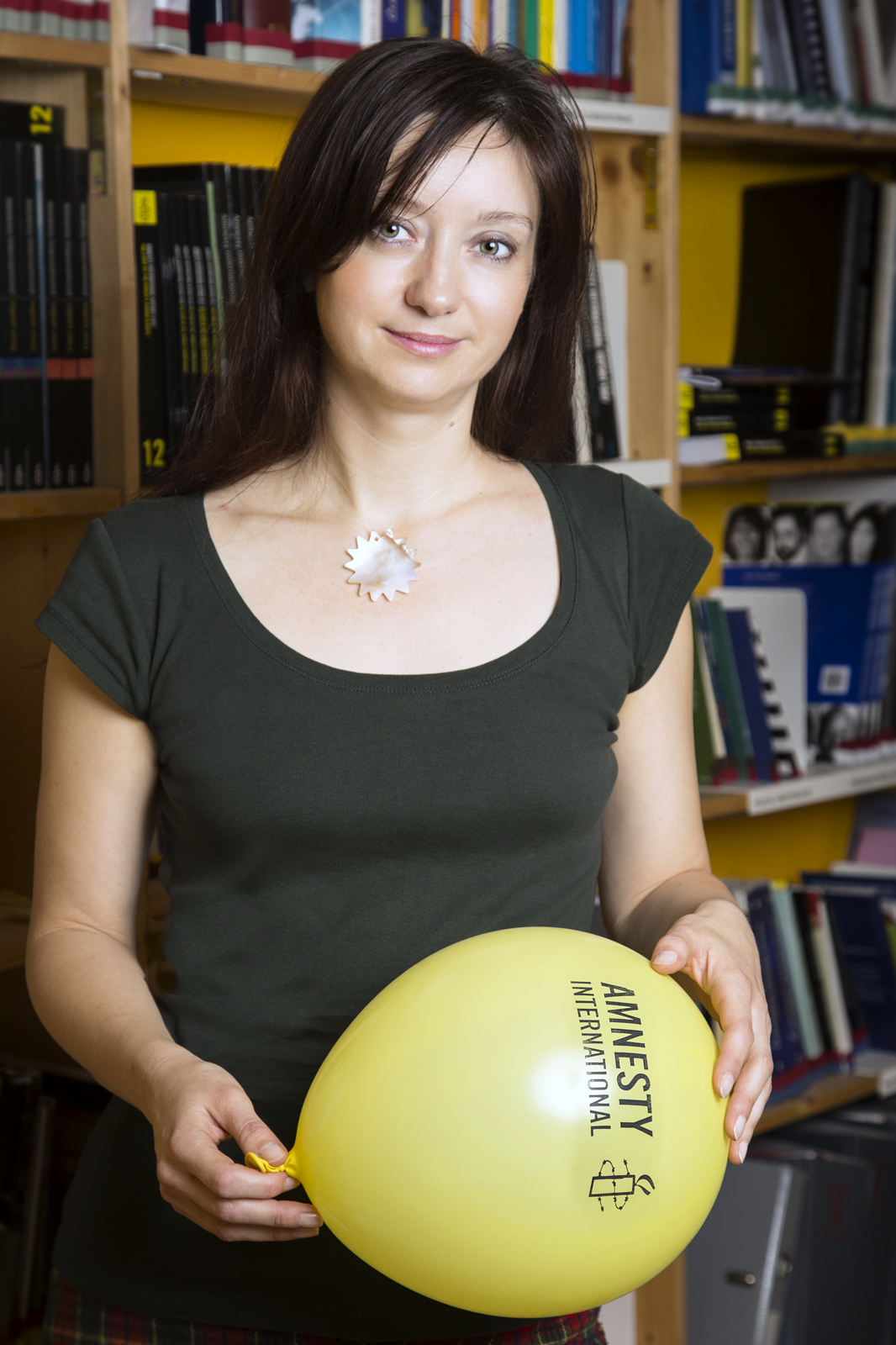|
Award-winners of this year's Documentary Film Festival
Winner of the Amnesty International Award for Best Human Rights Film is: I Am Not Your Negro by Raoul Peck |
|
Trieste Is Ours, Cinema Is Ours |
|
Simon Popek,Festival Programme Director |
Trieste Is Ours, Cinema Is OursPerhaps some might find it shocking and deplorable that this year’s Documentary Film Festival does not feature a single refugee and migrant film. Nevertheless, the festival’s programme board has decided – consciously or not – to grant this hot topic a so-called sabbatical year. Which doesn’t mean that we are refusing to tackle burning issues, perhaps we are merely being sceptical about the flood of migrant images – images infinitely multiplied and thus rendered ineffective – in contemporary documentary cinema. There are more than enough relevant topics to be explored and, at the time of vulgarly aggressive media (the news media as well as social networking sites), it is documentary cinema’s mission to throw spotlight on the overlooked and neglected subjects. Tempest is a good example of a film that unintrusivelly and poetically depicts Mexico ravaged by cartel wars. Instead of the perspective of the aggressors (films addressing these subjects have already screened at the Ljubljana DFF), the movie prefers to adopt the point of view of the innocent parties, most often women who are either victims of rape or collateral victims of the inefficient system – the Mexican version of ‘the war on terror’. Machines, a visually stunning Indian film, draws parallels between the gruelling daily routine of the poorly paid workers and the monotony of a textile factory, fusing man and machine into one, while the film by Slovenian documentary filmmaker Jasna Krajinovič does not address the phenomenon of the Islamic State by centring on throat slashings but delves into the subject on an intimate level, by featuring confessions of Western Europeans faced with the loss of their children and illustratively foregrounding the repercussions of these young people’s decision to wage Jihad in Syria and sever (harmonious?) family ties. Does a family actually live up to its definition of “a fundamental social group”? The Scandinavian societies challenged this concept in early 1970s and instead offered an alternative, which triggered unforeseen social changes. Exploring the existential black holes in a perfect society, The Swedish Theory of Love digs into the true nature of Swedish lifestyle. Comparisons with the Chinese one-child policy inevitably arise and, by some stretch of the imagination, also with war orphans and migrant children (well, here’s our migrant film at last!), refugees taught by Miss Kiet, the title heroine and second mother to her pupils who fosters tolerance and companionship in the Dutch production Miss Kiet's Children. With the rise of the far-right politics documentaries dealing with the said issues are likely to escalate. However, there’s no better admonition than the universal stories dealing with holocaust and its repercussions: A German Life, an Austrian production that chronicles the personal journey of the former secretary, stenographer and typist for one of the worst criminals in world history, the Nazi Propaganda Minister, and Austerlitz by Sergey Loznitsa (whom DFF paid tribute with an overall retrospective last year), which draws attention to the futility of the appeals for ‘the necessity of remembrance’, by tellingly representing concentration camps as grotesque versions of present-day amusement parks, where history has been trivialised and turned into an entertainment attraction comparable to Disneyland. It was also Slovenians (and Yugoslavs) who had their amusement park in socialism, just over the Italian border, in the Ponterosso Square in Trieste, where daily migrants (!) and buyers of cheap jeans were flocking to and symbolically crying out for two full decades, “Trieste is ours!” In a way, it truly was ours, for in June 1991 the city suffered significant economic decline after the border had suddenly been closed. And film buffs? We are crying, “Cinema is ours!” Still enjoying the collective viewing experience, irrespective of the trends and financial indicators, we are therefore paying a small homage to the traditional cinema experience, and the five films – some optimistic, some less so – that examine the state of things in India, USA, Germany, Austria and France. Let’s go to the cinema! |
|
|
Four minutes are enough...Last year, Amnesty International Poland conducted an experiment in cooperation with the DDB&tribal Warsaw advertising agency. Pairs were sat down and told to look each other in the eyes for four minutes. Of course, there is a “catch”. One in each pair was a refugee, and on the other side were European children, women and men. This was a way to test an idea that originates from psychologist Arthur Aron and proposes that four minutes of eye contact brings people together more than anything else. What was captured by the cameras was truly moving. At first shy smiles become wider. A hand finds another hand. Compliments are shared through looks and movements. Together tears are shed. But the mouths also turn into happy laughter. A warm hand shake, even a hug, is inevitable. As is playing. I am always driven to tears as I watch the video. I am not the only one. When we first watched it in the Slovenian Amnesty office, we confided to each other, almost embarrassed, “You know, it made me cry...”. A colleague from the Polish Amnesty recently told us that even a year after the video has been published she still receives requests to screen it at least once a week.* Millions have watched it and shared it. Yes, moving pictures sure can touch us deeply. In one way or another, we will be touched by the movies that have been chosen by the Programme Director for the festival week in March which will again bring a colourful array of films. Many films will deal with the issue of human rights, they are a ‘grateful’ subject for (engaged) documentaries, especially in these times. As soon as I write this down, I become somewhat ashamed of the egocentric infatuation with our era. If I don’t reach too far into history, but merely into the second half of the 20th and the beginning of the 21st century – a time when the international human rights system was expanding and developing intensely – many human rights have been safeguarded, although the fight was tough. The expansion of the circle of “beneficiaries” – ranging from women, to people of colour, to the gay, lesbian, bisexual and transsexual persons – is (has always been) a struggle and more often than not a movement forward by millimetres and occasionally a nose-dive backwards by meters. And it has remained so to this very day. James A. Baldwin, late since 1987, whose story inspired the film I am not your negro, also featured in the Documentary Film Festival, said: “To be a Negro in this country and to be relatively conscious is to be in a rage almost all the time”. Most likely many African Americans even today, 30 years after his death, feel this way, to which the Black lives matter movement also testifies. How sad it is that we are in need of a movement with such a slogan. Lives of people matter. Lives of refugees. Lives of Muslims. Lives of gay people. Lives of the poor. Lives of those pushed to the margins... This is why we invite you again this year, as every time we speak to you from these catalogue pages, to channel your feelings of support and anger at the injustice towards action. Join us, on our website www.amnesty.si you can find many opportunities to do something good for our world. Unfortunately, we cannot sit those who make decisions on the political level down for four minutes to make them look into the eyes of those whose dignity and human rights will be trampled by their decisions. What we can do is monitor their actions and appeal to their sense of responsibility. If not, they will be doing bad things also in our name!
*You can find it on YouTube under Look Beyond Borders – 4-minute experiment |
